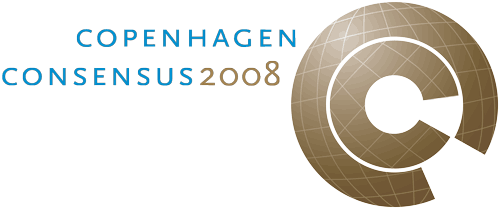Second Copenhagen Consensus: Conflict Assessment, Collier Chauvet Hegre
Assessment Paper
An Assessment Paper on Conflict was prepared for the second Copenhagen Consensus by Paul Collier, Lisa Chauvet and Haavard Hegre. The working paper used by the Expert Panel is available for download here, the finalized paper has been published in Global Crises, Global Solutions: Costs and Benefits through Cambridge University Press.
Short Summary
The first-ever cost-benefit analysis of United Nations peacekeeeping forces finds that spending $850m on a peacekeeeping intervention annually for ten years reduces the risk of violence in conflict-prone nations from nearly 40% to 7%.
Civil wars in small, poor countries cause untold suffering, and half of them are renewed flare-ups of recent conflicts. A single conflict can cost $250 billion or more, takes many years to recover from and can block all other humanitarian interventions.
The report argues that peacekeeping is even more cost-effective when provided in the form of an "over the horizon" security guarantee -- a commitment to send in foreign troops if needed, as Britain does in Sierra Leone. A guarantee could be supplied by the United Nations or the African Union to protect governments which have been properly elected.
Providing a credible international security force would cost about $2 billion a year but the gains, in terms of lower conflict risk and higher economic growth, would be between 11 and 39 times higher.
The number of civil wars has recently reduced, but the study says the risk of more violence is increasing, partly as a result of the commodity boom and partly because the spread of democracy increases the risk of coups.

